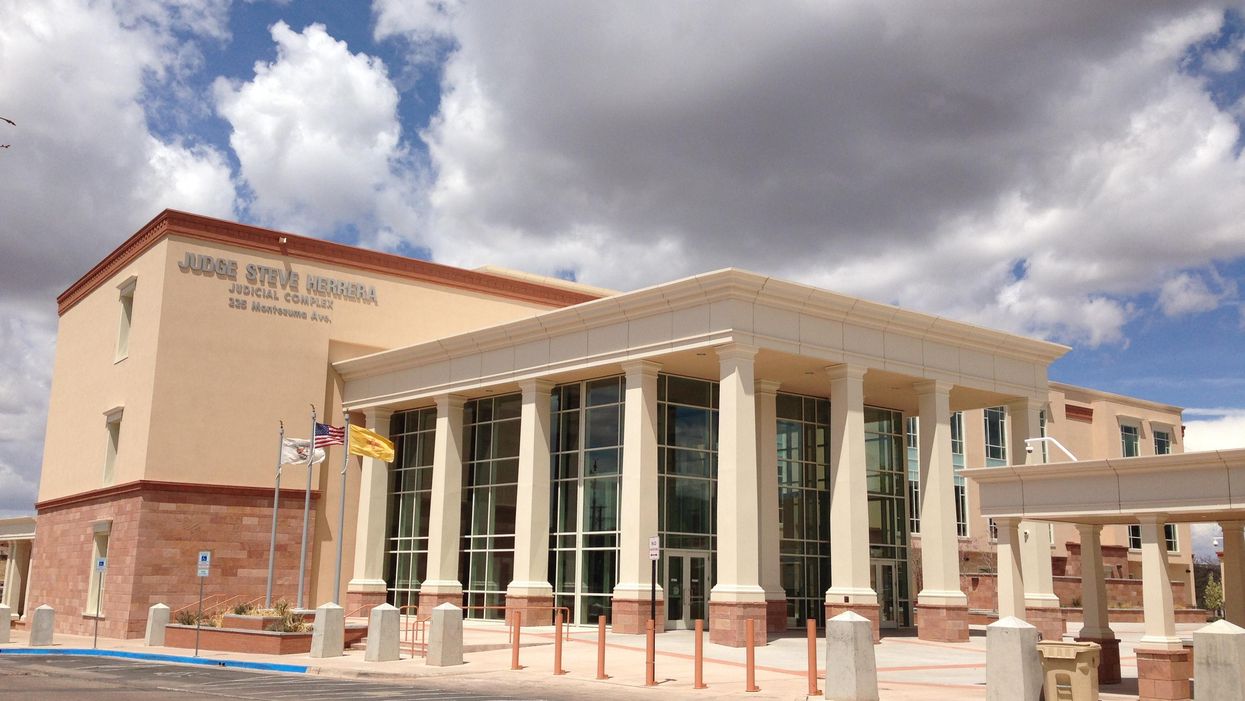Johnson is executive director of the Election Reformers Network.
In recent months, we’ve gotten a crash course in the ways that our election systems are now dangerously vulnerable to partisan interference and disorder. Numerous candidates for secretary of state deny the results of the 2020 election, including several who are, or likely will be, their party’s nominee. Party operatives are recruiting biased poll workers to give their side an edge.
Events last week in Otero County, N.M. – which happens to be home to one of the nation’s largest missile ranges – highlight another troubling threat. There, the Republican-led county commission refused to certify the results of the June 7 primary election, citing general concerns and “gut feelings” about voting software, without specific evidence and in disregard of security tests confirming the system’s accuracy.
After a lawsuit filed by the secretary of state, the state Supreme Court ordered the commission to certify, which it did, with a vote of 2-1 shortly before the state-mandated deadline. State law establishes specific circumstances under which such commissions can query results submitted by the county clerk, none of which pertained in this case, the Supreme Court found. Appropriately, the rule of law took priority over the personal views of the commissioners.
But there’s no guarantee that future efforts to use the certification process to hold an election hostage will fizzle out so quickly — especially after a hotly contested vote where partisan tensions are running high. That raises a bigger question: whether in our hyper-partisan era, having elected politicians sign off on election results is playing with fire.
We almost got burned in 2020. Then, the two Republican members of a bipartisan canvassing board in Michigan’s largest county initially refused to certify the results, before ultimately relenting. In the next presidential election, the pressure on the party nominees to do the party’s bidding is likely to be even greater.
In most democracies, the officials who conduct the election also certify the results, and for the most part they are independent, nonpartisan professionals. But in the U.S., many states require certification by county commissions or canvass boards composed of individuals either nominated by a political party or elected under its banner. In most states, the certification step is not a venue to judge concerns about elections; the courts are, based on evidence presented by candidates. That’s why New Mexico’s Supreme Court quickly ordered the board to certify.
But that doesn’t mean that county actions like this aren’t dangerous. An effort like we’ve seen in Otero County could act as a flashpoint for conflict entrepreneurs to exploit, stoking anger and potential violence, and further destabilizing our system. Last week’s election protests in New Mexico’s Sandoval County were apparently inspired by the Otero County conflicts.
Complicating the problem is the fact that some states’ laws are not as clear as they need to be about when these officials have discretion and when their roles are purely administrative. The manipulation of just this kind of ambiguity was an important driver of the chaos of January 6th.
It may once have made sense to put elected partisans and party nominees in charge of certifying results. Progressive-era reformers devised these structures to provide some protection for political parties (though only the two largest parties) in an era when Supreme Court precedent sidelined federal courts. But precedent-changing decisions beginning in the 1960s altered the landscape, moving the courts to center stage, where they belong, and removing the need to always ensure Republican and Democratic representation in the results certification process.
And today, fair elections face a very different threat: manipulation by out-of-control partisans and ideological extremists. To head off that danger, we need to ensure that key roles in our election process are entrusted to nonpartisan experts, that rules are clear over where discretion lies, and that as much as possible, concerns over results are entrusted to courts.
If we don’t, it might not be long before partisan opportunists calculate that a controversy over certification can be used to whip up conflict that benefits their side. We shouldn’t give them that chance.




















